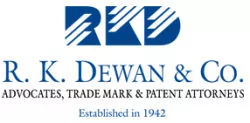The Trademark Registry on 31st March, 2016 declared almost 5, 00, 00 (five lakh) trademark applications as abandoned. This fired a discussion among trademark professionals because such move of the Trademark Registry may not be in compliance with Rule 38(4) and Rule 38(5) of the Trademark Rules, 2002. Rule 38(4) states that after the examination report is issued, a period of 30 days is granted to the Applicant to file a response to the report; a request for extension of time can also be made by the Applicant. This 30 days period begins from the date of receipt of communication i.e. the day when the report is received by the Applicant (rule 38 (5)).
A reading of rule 38(5) makes it evident from its language that there are four opportunities to be granted to an Applicant before declaring an Application as abandoned. A mark shall be deemed abandoned if the Applicant:
1. Fails to amend his application according to the proposal ;or
2. Fails to submit his observations to the Registrar; or
3. Apply for a hearing; or
4. Fails to attend the hearing.
If the Applicant fails to comply with the abovementioned alternatives, the Registrar has to fixing a hearing (the fourth alternative in Rule 38(5)), and if the Applicant is not present on the date of hearing, the mark can be declared as abandoned by the Registrar. A non-compliance of these provisions, by the Trademark Registrar, will be considered as a violation of the principles of natural justice since, the Applicant would not have been given an opportunity to present its case for defending its mark.
In light of this legal understanding of Section 38, Writ Petitions 3043/2016 and 3067/2016 were filed before the Hon'ble Delhi High Court. The Court upon looking at the large number of abandonments stayed the Trademark Registry's orders. All the authorized trademark agents can now file their reply to the examination reports containing the objections (which were declared abandoned) through a comprehensive e-filing services as available on the trademark registry's website.
The content of this article is intended to provide a general guide to the subject matter. Specialist advice should be sought about your specific circumstances.


